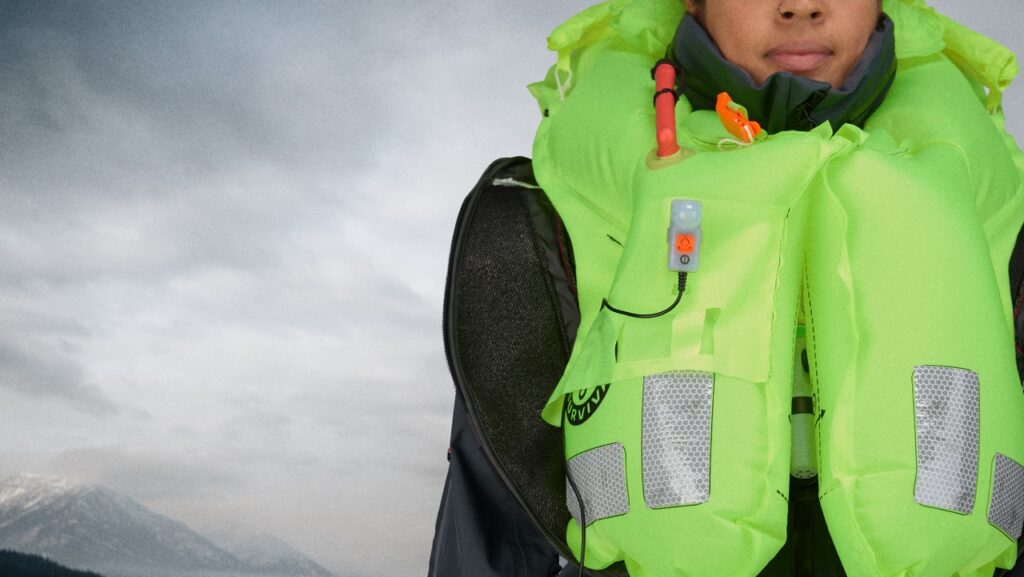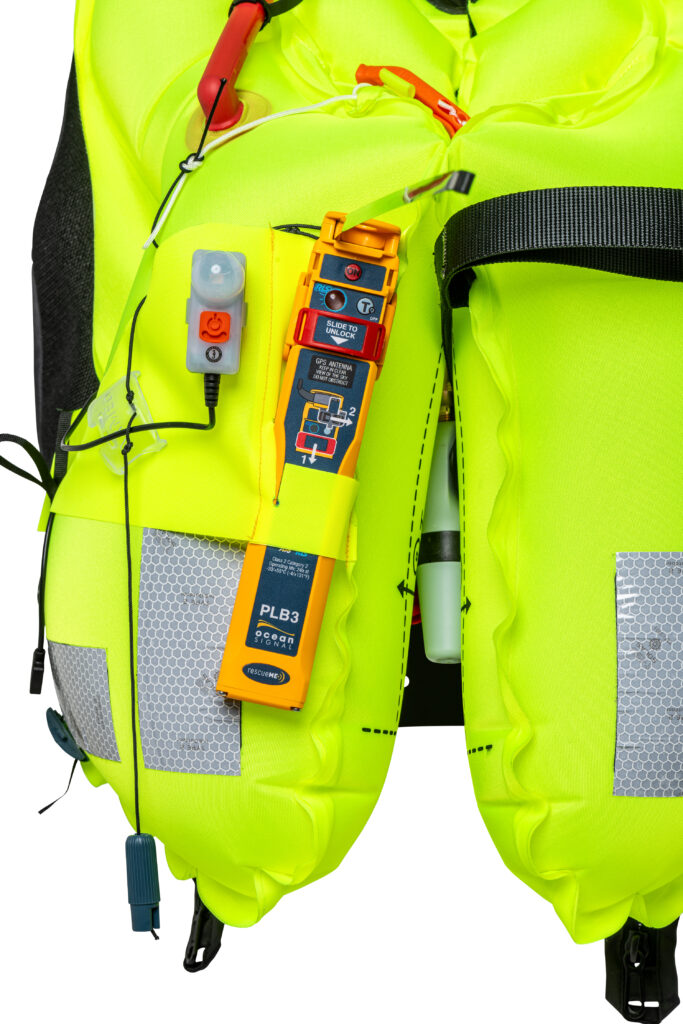
Mustang Survival: Why the US-owned safety company wants the UK market
American-owned and Canadian headquartered, Mustang Survival has been developing high-performance marine apparel and safety equipment for 56 years.
Synonymous with floatation devices and high-grade safety equipment in North America, Mustang Survival has more recently set its sights on the UK market where it is making inroads in the marine safety sector.
Atlas 190 lifejacket reaches DAME appeal
In 2021, Mustang branched out ‘across the pond’ and opened an office in Salisbury, UK, near its sister company, Henshaw Inflatables, in Wincanton. Both Mustang Survival and Henshaw fall under the same umbrella, The Wing Group.
“The move was established to rapidly prototype for military and industrial partners, and to blend the unique insights and requirements of the UK and European markets into the company’s existing product portfolio,” says Eron Chorney, VP of product merchandising at Mustang.

The Atlas 190
After two years of growth with apparel in the UK’s sailing, paddling, and angling markets, Mustang Survival has introduced its first ISO-approved flotation range, including the Atlas 190 lifejacket, which received a Special Mention at the 2023 DAME Awards. Nigel Parkes, developer and engineer at Mustang Survival, says: “Being known first and foremost for our PFDs and buoyancy aids in North America, we are now able to round out the collection in the UK.
“The primary goal was to make the Atlas super comfortable. We wanted to design a product that is very free around the neck when you’re wearing it in its packed state but offers ultimate performance when it’s in its inflated state.”

The secondary goal, Parkes says, was to challenge conventional bladders and increase the safety features without impacting comfort, resulting in a revolutionary new design.
“We basically started from the ground up to try and satisfy the ISO standards rather than the North American standards because there is a difference,” says Parkes. “A lot of the aspects of the in-water performance of the products are slightly higher or different in Europe and the UK. So, it demanded a bit of a rethink in terms of our approach.”
The Atlas’ sleek exterior design draws attention to the low-scooped neckline.
According to Parkes, the “true innovation sits wrapped in a soft multiple-foam layered package, and the contoured bladder’s three-dimensional shape that follows the body.
The Atlas incorporates Mustang’s new Adapt (ADvanced Airway Protection and Turning) technology, meaning that when the bladder inflates, the high buoyancy effectively turns the wearer face up. “The adjusted head angle and a pillow, both additional safety features, are designed to keep the head upright and slightly forward, and the airway clear, ensuring that the wearer can spot incoming rescuers and hazards in precarious situations,” explains Parkes.
Mustang has also expanded its product portfolio with two additional foam buoyancy aids, the Passport and Podium.
Canadian safety testing
Mustang’s headquarters, the Mustang Waterlife Studio, is located in British Columbia on the banks of the Fraser River and acts as an incubation hub for new products and testing.
“The site includes a science lab to test new ideas and material properties, a prototyping shop
to rapidly build product concepts, a testing pool to evaluate new products and a manufacturing centre for crafting marine gear,” explains Chorney.
With a team of inhouse engineers and designers, the company serves three major product categories: military and life-saving organisations, industrial and commercial businesses, and recreational marine use. North American manufacturing for NASA, SpaceX, military, commercial, and recreational use is based in a large newly opened plant in Jacksonville, Florida, while other offices are located in West Virginia and California. Importantly, the design and development successes in Mustang’s different categories provide a powerful knowledge trickledown effect.
Military and recreational safety equipment
Each category’s product design and production standards informs the other lineups in the Mustang Survival portfolio.
Chorney explains that shared knowledge is key to the company: “The Hudson and Helix dry suits are great examples of the interplay between these product categories. Designed using our Sentinel platform that was created for our military and public safety, the Hudson and Helix were made for people who work and play in remote and extremely cold environments like open water rescuers who need high arm rotation for heavy swimming in the frigid Pacific. These suits’ freedom of movement design also serves recreational paddlers well.
“The closed comfort system, which seals against water but isn’t as tight as a latex seal, is a clever bit of engineering that came from working with the water rescue teams. The teams requested a dry suit that allows users to open the neck seal to regulate body temperature while working long days in warm flood rescue regions.”
More than five decades since its inception, Mustang Survival continues to be true to its problem-solving DNA. With its first ISO-approved flotation range receiving industry nods, its success in the UK seems set on the right path. While Europe is not yet in the crosshairs, further expansion is sure to follow.
This article was originally published in the issue 11 of Marine Industry News magazine
The post Mustang Survival: Why the US-owned safety company wants the UK market appeared first on Marine Industry News.
